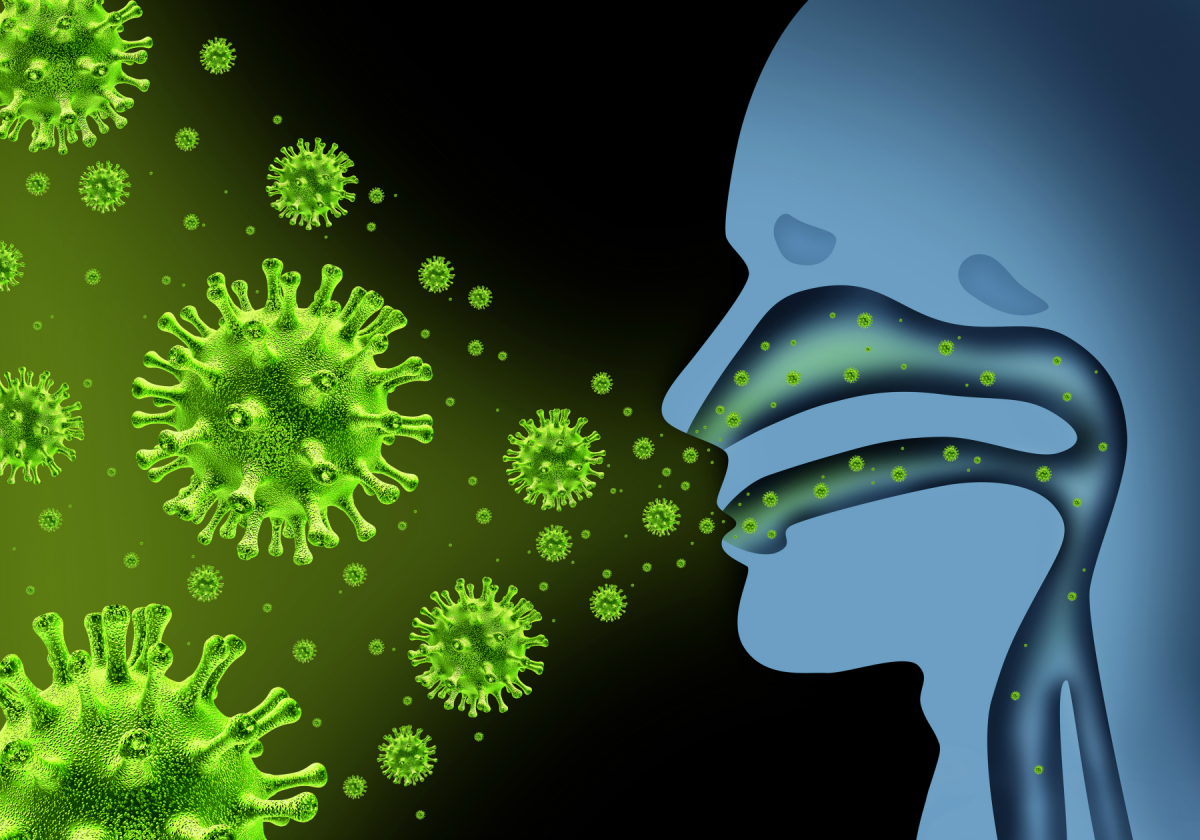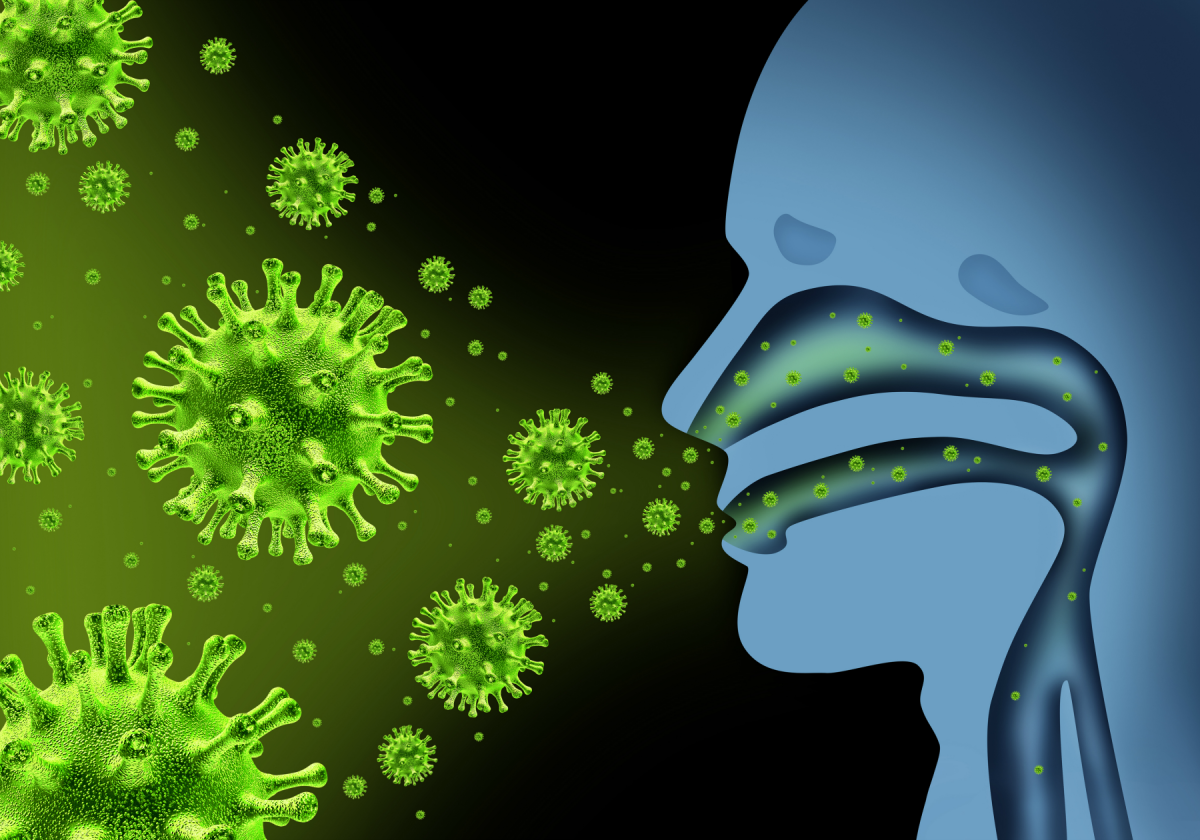What is the flu (influenza)?
The flu is an illness you get from the influenza virus. It causes symptoms like head and body aches, sore throat, fever and respiratory symptoms, which can be severe. Flu is most common in winter months, when many people can get sick at once (an epidemic).
When is flu season?
In India, influenza virus circulation usually peaks during monsoon season (June-September) with secondary peaks during winter (November-February). However, the actual timing of the influenza season varies across the country due to different climatic regions.
What is the difference between the flu and the common cold?
The flu and the common cold can have similar symptoms, like runny nose and cough. But cold symptoms are usually mild and flu symptoms can be severe and lead to serious complications. Different viruses cause colds and the flu.
What are the symptoms of the flu?
Symptoms of the flu usually come on quickly, and can include:
- Fever.
- Chills.
- Body aches.
- Cough.
- Headache.
- Sore throat.
- Runny or stuffy nose (congestion).
- Tiredness or feeling run down.
- Diarrhea or vomiting (usually only in kids).
You may not have all of these symptoms.
What causes the flu?
The influenza virus causes flu. Influenza A, B and C are the most common types that infect people. Influenza A and B are seasonal (most people get them in the winter) and have more severe symptoms. Influenza C doesn’t cause severe symptoms and it’s not seasonal — the number of cases stays about the same throughout the year.
H1N1 (“swine flu”) and bird flu are both subtypes of influenza A.
Is the flu contagious?
Yes, the flu is contagious (it spreads from person to person). For every person infected, they spread the flu to one to two more people.
How does the flu spread?
The influenza virus spreads from direct or indirect contact with someone else who’s infected. Common ways to get the flu include:
- From someone nearby coughing, sneezing or talking. Droplets can either get onto your hands or move through the air to get into your nose or mouth. The flu then moves into your lungs.
- By touching a surface that’s contaminated by the flu virus, then touching your face, nose, mouth or eyes. This includes things like door knobs, desks, computers and phones.
- By touching the hands or face of someone who has the flu, then touching your face, nose, mouth or eyes.
How long after exposure will I get the flu?
If infected, you’ll usually get symptoms of the flu one to four days after exposure (incubation period).
How do I manage symptoms of the flu?
Many people can manage the symptoms of flu at home with over-the-counter (OTC) medications and other therapies, including:
- Getting plenty of rest.
- Drinking fluids like water or broth to help prevent dehydration.
- Applying heat packs or hot water bottles can help with aching muscles.
Not everyone should take certain OTCs, so check with your health provider before you use them. It’s also a good idea to make sure certain medications are okay to use together or with supplements. Don’t give aspirin to children under the age of 16 unless their health provider says it’s okay.

How can I prevent the flu?
- Wash your hands often with soap and water. If you aren’t able to use soap and water, use an alcohol-based hand sanitizer.
- Cover your nose and mouth when you sneeze or cough. Cough or sneeze into your elbow or a tissue rather than your bare hand.
- Avoid being around other people when you or they are sick with the flu or other infectious diseases.
- Consider wearing a mask if you’re sick and can’t avoid being around others.
- Avoid touching your face, eyes, nose and mouth.
- Don’t share food or eating utensils (forks, spoons, cups) with others.
When should I see my healthcare provider?
If you think you have the flu, it’s important to get tested early on so that antiviral medications are most effective if your provider prescribes them. Contact a healthcare provider right away if:
- You have flu symptoms and an underlying condition that puts you at higher risk for severe illness.
- Your symptoms don’t start to improve after seven to 10 days or if you have a fever lasting longer than three days.
- You’re pregnant and have a fever or other flu symptoms.
When should I go to ER?
Go to the ER or seek immediate medical attention if you have symptoms of severe illness, including:
- High fever (over 103 F/40 C).
- Difficulty breathing.
- Not peeing or peeing very little.
- Pain in your chest or stomach (abdomen) that doesn’t go away.
- Persistent dizziness.
- Confusion.
- Severe muscle pain or weakness.
- Seizures.
- Bluish skin, lips or nails (cyanosis, which can be a sign of low oxygen levels in your blood or tissues).
- Fever or cough that gets better or goes away but then get worse.
- Worsening of other health conditions.


